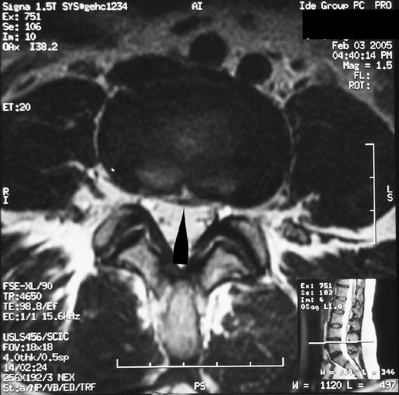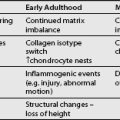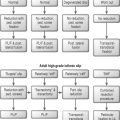CHAPTER 18 Placebo
When used as a noun, placebo means a treatment that lacks any specific therapeutic effect. In the case of a drug, a placebo would be an agent that lacks any pharmacological effect. In the case of a procedure, a placebo would be one that lacks any specific anatomical or physiological effect. Nevertheless, in other respects a placebo has all of the features of an intervention that should work.
PLACEBO RESPONDER
There is no personality trait or psychological trait that causes individuals to respond consistently to placebos.1 Experimental studies have shown that any individual at any time is liable to express a placebo response, depending on the circumstances; but also that such responses are not consistent.1–3 Indeed, one authority has ventured to conclude that proneness to placebo is universal.4
PLACEBO RESPONSES ARE FAKE
Nor is the placebo response a sign of psychological distress. Placebo responses occur under experimental conditions in individuals with no evidence of psychological disturbance.5,6 Among patients with chronic pain, profiles of psychological distress do not differ between patients who have true-positive responses to placebo-controlled diagnostic blocks and those who have placebo responses,7 or between patients who have successful outcomes after treatment and those who do not.8
CONSTANT RATE
A widespread urban myth is that about one-third of patients in any cohort will express a placebo response, implying some sort of endemic influence. This myth has been traced to an early study of placebo responses.1,3 In reviewing the literature, Beecher9 encountered a wide variety of placebo response rates, ranging from 15% to 58%. A figure of 35.2% arose as a numerical average of these rates, unweighted for sample sizes. Subsequent studies have encountered placebo response rates from as low as 0% to as high as 100%.1 There is nothing constant about 35%. Placebo response rates differ considerably according to the circumstances of the study.
MECHANISM
In the context of pain medicine, a placebo would be an agent or a procedure that should have no effect on pain by pharmacological, anatomical, or conventional physiological means. A placebo response would be relief of pain despite this lack of a conventional means by which the pain could be relieved. The occurrence of a placebo response implies a placebo effect.
Conditioning
Conditioning is a prominent theory amongst psychologists who seek to explain the placebo effect.2,3 The theory is based largely on data from experimental studies, in which subjects previously exposed to an intervention have continued to express positive responses when that intervention was surreptitiously or progressively replaced with a sham intervention.
However, it is hard to reconcile this theory with the nature of interventional spine medicine. If anything, patients are likely to encounter repeated failures of treatment and, therefore, would be conditioned not to respond. Indeed, the conditioning theory has been adapted to fit this phenomenon by becoming an explanation for nocebo responses or ‘placebo sag.’2 In contrast, if the contention is that patients expect relief when they consult a doctor, instead of conditioning theory, expectation is a more appealing explanation.
Expectation
One of the prominent explanations for the placebo effect is that patients who undergo a treatment for pain expect the treatment to work.2,3 This expectation can be reinforced if the practitioner engenders or fosters the expectation. It is reinforced if the treatment is undertaken in an impressive manner in an impressive setting, such as a high-tech facility. Indeed, factors found to enhance the placebo effect are: the credibility of the therapist, the credibility of the therapeutic setting, the credibility of the treatment, the credibility of the administrative setting, and the nature of the interaction between the patient and the therapist.2
Spinal mechanisms
Circumstantial evidence to this effect arises in experiments in which placebo responses have been reversed by the administration of opioid antagonists such as naloxone.1,3,5,10 Conversely, antagonists to cholecystokinin enhance placebo analgesia.6 The fact that drugs, known to block analgesic pathways in the brainstem and spinal cord, also block placebo effects implies that the same physiological systems are involved.
Meaning model
The meaning model invokes quite a different process.3 It suggests that, in order to maximize the placebo response, the patient must feel listened to, must receive what they perceive to be a valid explanation for their illness, feels care and compassion from their treatment environment, and feels empowered.
MAGNITUDE
In other instances, the efficacy of analgesics is not significantly different from that of placebos. That implies that the apparent efficacy of these analgesics, in the ‘real’ world, is entirely due to placebo effects.11
Similar proportions apply to those surgical interventions for pain that have been subjected to placebo controls. On average, sham-treated patients experience 50% as much relief of pain as do patients treated with antiradical intradiscal electrothermal therapy.12 But these average figures belie the actual situation. While some patients have no response to sham treatment, others can obtain complete relief of pain. This combination results in an average of about 50%, but that average is not shared by all patients.
The same applies to less-invasive procedures. The efficacy of lumbar intraparticular injection of corticosteroids is no greater than that of intraparticular injection of saline,13 intramuscular injection of either steroids or saline,14 or of simple medial branch blocks.15
Even diagnostic procedures are subject to placebo effects. Patients who believe that they are undergoing zygapophyseal joint blocks report complete relief of pain following subcutaneous injection of normal saline.16 Stellate ganglion blocks with normal saline relieve the symptoms of complex regional pain syndrome.17 Intravenous infusions of normal saline relieve the motor features of complex regional pain syndrome.18
1 Wall PD. The placebo effect: an unpopular topic. Pain. 1992;51:1-3.
2 Peck C, Coleman G. Implications of placebo theory from clinical research and practice in pain management. Theoret Med. 1991;12:247-270.
3 Brody H. The placebo response: recent research and implications for family medicine. J Fam Pract. 2000;49:649-654.
4 Shapiro AK. Semantics of the placebo. Psychiatr Q. 1968;42:635-695.
5 Amanzio M, Benedetti F. Neuropharmacological dissection of placebo analgesia: expectation-activated opioid systems versus conditioning-activated specific subsystems. J Neurosci. 1999;19:484-494.
6 Benedetti F, Amanzio M. The neurobiology of placebo analgesia; from endogenous opioids to cholecystokinin. Prog Neurobiol. 1997;51:109-125.
7 Lord S, Barnsley L, Wallis BJ, et al. Chronic cervical zygapophyseal joint pain after whiplash: a placebo-controlled prevalence study. Spine. 1996;21:1737-1745.
8 Wallis BJ, Lord SM, Bogduk N. Resolution of psychological distress of whiplash patients following treatment by radiofrequency neurotomy: a randomised, double-blind, placebo-controlled trial. Pain. 1997;73:15-22.
9 Beecher HK. The powerful placebo. JAMA. 1955;159:1602-1606.
10 Ter Riet G, de Craen AJM, de Boaer A, et al. Is placebo analgesia mediated by endogenous opioids? A systematic review. Pain. 1998;76:273-275.
11 Van Tulder MW, Scholten RJPM, Koes BW, et al. Nonsteroidal anti-inflammatory drugs for low back pain. A systematic review within the framework of the Cochrane Collaboration Back Review Group. Spine. 2000;25:2501-2513.
12 Pauza KJ, Howell S, Dreyfuss P, et al. A randomised, placebo-controlled trial of intradiscal electrothermal therapy for the treatment of discogenic low back pain. Spine J. 2004;4:27-35.
13 Carette S, Marcoux S, Truchon R, et al. A controlled trial of corticosteroid injections into facet joints for chronic low back pain. New Engl J Med. 1991;325:1002-1007.
14 Lilius G, Laasonen EM, Myllynen P, et al. Lumbar facet joint syndrome: a randomised clinical trial. J Bone Joint Surg. 1989;71B:681-684.
15 Marks RC, Houston T, Thulbourne T. Facet joint injection and facet nerve block: a randomised comparison in 86 patients with chronic low back pain. Pain. 1992;49:325-328.
16 Schwarzer AC, Wang S, Bogduk N, et al. Prevalence and clinical features of lumbar zygapophyseal joint pain: a study in an Australian population with chronic low back pain. Ann Rheum Dis. 1995;54:100-106.
17 Price DD, Long S, Wilsey B, et al. Analysis of peak magnitude and duration of analgesia produced by local anesthetics injected into sympathetic ganglion of complex regional pain syndrome patients. Clin J Pain. 1998;14:216-226.
18 Verdugo RJ, Ochoa JL. Abnormal movements in complex regional pain syndrome: assessment of their nature. Muscle Nerve. 2000;23:198-205.







